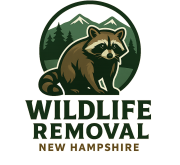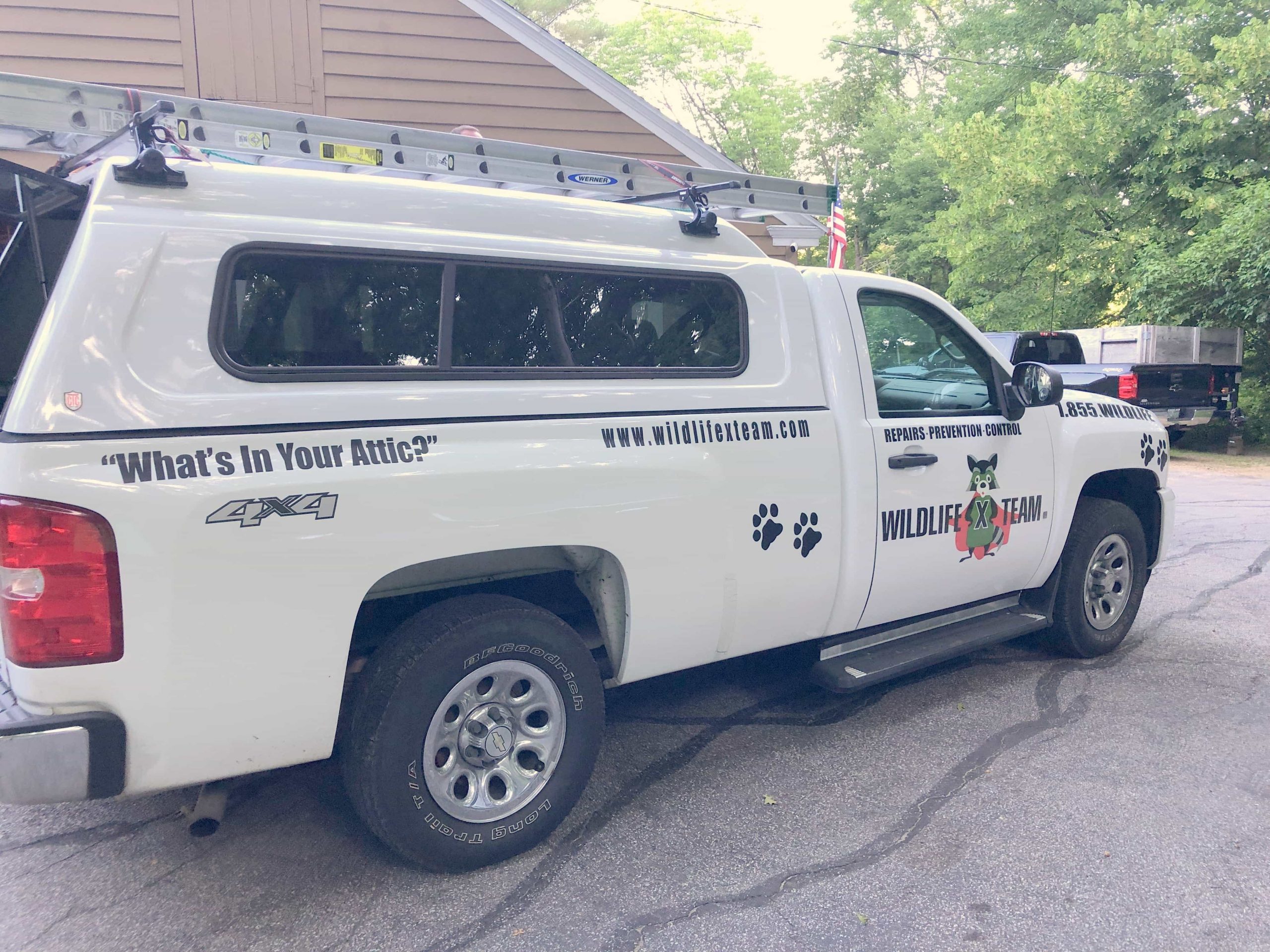Wildlife Removal New Hampshire
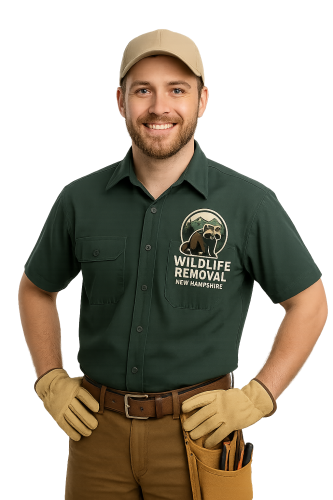
Call for Your Detailed Wildlife Inspection
OPOSSUM REMOVAL
Opossums are omnivores, meaning they’ll eat practically anything. That’s why you often find them hiding around garbage cans or near human habitations. With food abundant near our homes, that provides plenty of opportunities for a hungry opossum. Nor should these marsupials be confused with possums. Despite their name often being shortened, they’re completely different creatures.
Wildlife experts often praise these unusual-looking creatures for clearing out harmful insects and hunting rodents. They’re surprisingly more beneficial than harmful. But that hasn’t convinced most homeowners. Like most wild animals, opossums are major vectors for disease. These include leptospirosis, coccidiosis, tularemia, tuberculosis, and toxoplasmosis. That’s why removal is often the first option, especially if the opossum has taken up residence in your home, attic, or crawlspace. Visit howtokeepopossumsaway.com to learn more about how to prevent opossums from entering your home.
If you’ve found evidence of an opossum on your property, contact Wildlife Removal New Hampshire. With years of experience, we’ll efficiently and effectively remove an opossum. We even advise and enact solutions to prevent future opossum appearances. However, check out the advice below before you get in touch.
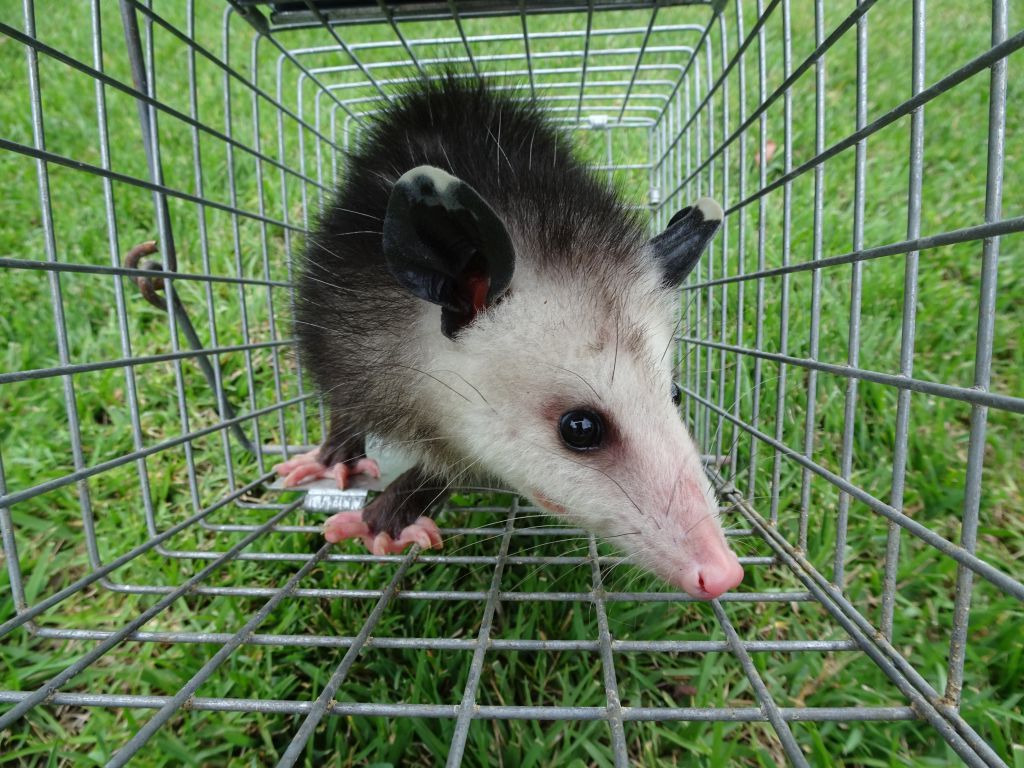
Step one: Inspect your property
The first step when dealing with any animal infestation is a complete inspection of your property. Here, you’re looking for any signs of damage, including:
- Tampering with trash cans
- Scratch marks on your home
- Foul odors
- Tracks with opposable thumbs
- Evidence of nesting
- Pet food disappearance
These are all clear indicators that there’s an opossum on your property.
Step two: Locate the nest
Using the above indicators, track down the opossum nest. When looking in crawlspaces, wear the appropriate protective equipment – long-sleeved clothes, gloves, masks, and goggles – as you want to be covered if attacked. If you do spot an opossum, do not get any closer.
Similarly, when checking the attic, be careful not to disturb. Whilst opossums won’t usually attack, if threatened, they can scratch or bite.
Step three: Trap the opossum
The best solution to remove an opossum is to use a box trap. It involves a metal cage with a mechanism that, once triggered, traps the animal inside. Unlike other animals, such as rats, opossums are not wary of traps and can be caught easily. The box trap should be at least 10 x 12 x 32 inches in size.
Place the trap in a location frequented by the opossum, for instance, outside their nest, inside the attic, or near a potential food source. Inside the trap, place the bait. Effective baits include peanut butter, jam, fish-flavored cat food (which will also attract cats), and fruits such as grapes, bananas, and melons.
Step four: Clean the affected area
You’ll want to clean an area affected by the opossum thoroughly. That means using chemical disinfectants and scrubbing with soap. The aim is to eradicate any potential diseases, such as bacteria and viruses, left behind by the opossum. Enzyme-based cleaners are particularly effective. Additionally, clean up any feces and urine. Replace any damage to your property, including to insulation or the structure.
Many pest control companies offer wildlife sanitation services to handle these kinds of situations. They have the appropriate expertise, equipment, and chemicals required. However, if you wish to do it yourself, avoid contact with opossum-contaminated areas and wear protective equipment – ideally, a full suite covering your body.
Step five: Take preventative action
After removing the opossum, you want to ensure you don’t follow a repeat event in the future. Here are some key tips to prevent future opossum infestations:
- Remove all potential food sources. That can include stopping feeding pets outside and placing heavy, lockable lids on garbage cans. By doing so, easy food sources are cut off from hungry opossum paws.
- Find any holes in your property and fill them. During the inspection of your property, note down any potential openings. These can be filled with either foam – if small – or with a staple gun and steel mesh.
- Cut any long branches near your home. Opossums are excellent climbers and will use any nearby branches to reach your roof. That’s likely how they entered the attic. Making sure to trim trees is an excellent preventative measure.
Dealing with opossums is never easy. Indeed, dealing with any wild animal requires skill and experience. That’s why we advise you to contact us here at Wildlife Removal New Hampshire. Alongside fast and efficient pest removal, we also offer damage repair services and pest control. If the same animals routinely plague you, we can advise and install the relevant preventative measures. These can include fencing, fortification of roofing and decking, and the repair of vulnerable access points.
Handling the situation alone is unnecessary. We understand that wildlife infestations are distressing. Therefore, we’re dedicated to providing a helpful, informative, and rapid response. Call us today!
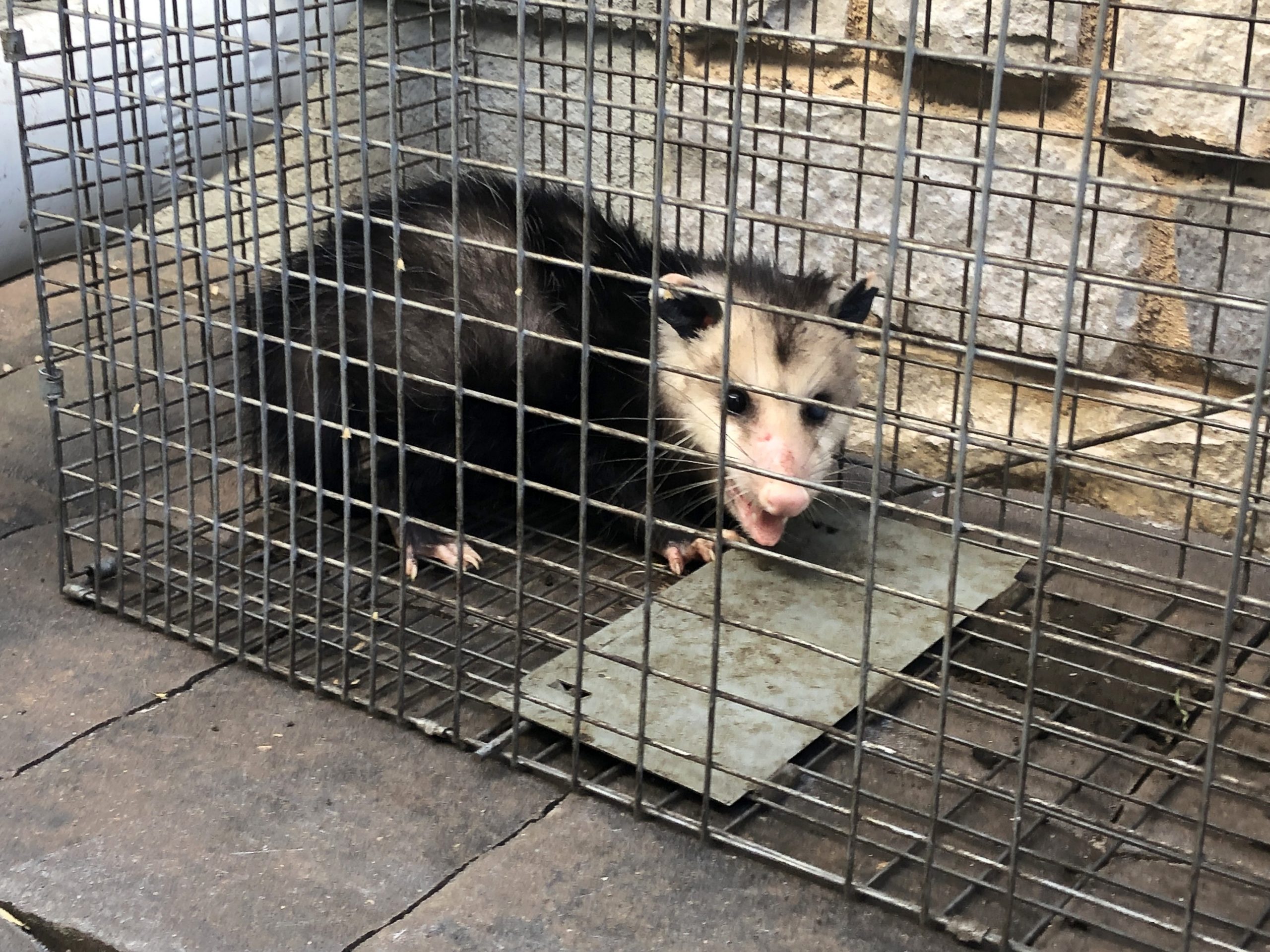
WHY HIRE Wildlife Removal New Hampshire
Wildlife Removal New Hampshire offers the best services and affordable rates. We service New Hampshire and other areas that include:
Laconia, Meredith, Alton Bay, Alton, Ossipee, Center Harbor, Center Tuftonboro, Gilmanton, Gilmanton Iron Works, Holderness, Rumney, Lochmere, Loudon, Newfound Lake, Moultonborough, Gilford (Govt. Isl), Grafton, Plymouth, Andover, Danbury, Hebron, Tilton, Winnisquam, Ashland, New Hampton, Bristol, Salisbury, Wolfeboro Falls, Belmont, Hill, Bridgewater, New London, Sunapee, Wilmot, Wolfeboro, Holderness, Franklin, Squam Lake, Sanbornton, Lake Winnipesaukee, Sunapee Lake, and Silver Lake.
Our services range from wildlife control and animal pest removal, cleaning, and decontamination of infested areas, exclusion services, and professional advice on pest management, prevention, and control. Wildlife Removal New Hampshire has professionals that are thorough, experienced, and always ready to offer timely services. Call us today!
Get Quote for Your Exclusive Wildlife Inspection Report.®



Call for Your Exclusive Wildlife Inspection Report.®

